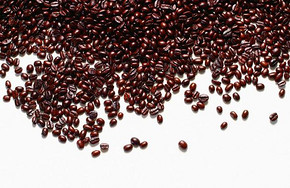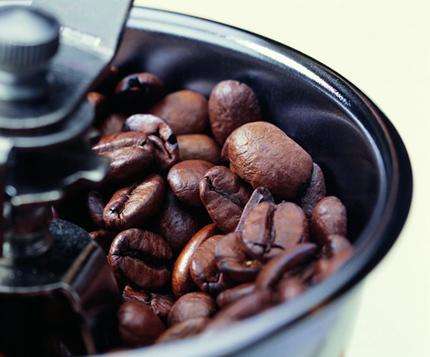Introduction to Brazilian Coffee, Introduction to Brazilian Coffee Plantations
Brief introduction of Brazilian Coffee
"Coffee Kingdom" Brazil is one of the largest coffee exporters and consumers in the world. Brazilian coffee culture, like Chinese tea culture, has become a tradition, which embodies respect, respect and sincerity. As the largest coffee producer in the world, Brazil produces coffee with mild flavor, slightly sour and slightly bitter, which is the best representative of the finished product. Brazilian coffee has a strong fragrance, has been world-famous, Brazilian coffee culture, has a long history.
It is no accident that Brazilian coffee has become a characteristic drink, because the abundant sunshine in northern Brazil has created a large production and rich variety of Brazilian coffee. There are more than 4 billion coffee trees in Brazil. All Brazilian coffee is Arabica, and Santos is one of its representative varieties. It is named after it is exported from the port of Sao Paulo. Brazilian coffee is world-famous for its fragrance, but it is related to killer bees in Africa, and the sting of killer bees scares everyone. In people's impression, killer bees and coffee are two unrelated concepts. Surprisingly, coffee pollinated by killer bees is particularly fragrant and delicious, and the quality of Brazilian coffee has been greatly improved.
Exported to the port of Sao Paulo in Sao Paulo, it is the highest grade of Brazilian coffee. Large, green or yellowish beans are generally used for blending. The taste of Brazilian coffee has a low sour taste, with the sweet and bitter taste of coffee, the entrance is very smooth, and with a hint of grass, the aftertaste can make people comfortable and pleasant.

Brazilian coffee plantation
Brazil is located in the Latin American region of the Western Hemisphere, located in the eastern part of South America and on the west coast of the Atlantic Ocean, bordering all countries on the South American continent except Ecuador and Chile; the vast majority of the territory lies between the equator and the Tropic of Cancer, is the most extensive tropical country in the world. The territory has a tropical rain forest climate and a tropical prairie climate. The superior tropical natural conditions are very suitable for the growth and production of tropical cash crops-coffee.
Brazil makes full use of the tropical geographical environment and attaches importance to the production and sale of coffee, so that the output, export volume and per capita consumption of coffee have been ranked first in the world for many years, and have been known as the "kingdom of coffee". Coffee was introduced into Brazil after the 18th century. In 1727, coffee was introduced into Port Belem, Brazil from Guyana. Since then, it has settled in Antuku, Brazil, mainly in the southeast coastal areas of Brazil. Namely, Sao Paulo, Parana, San Esprito, Minas Gerais and other four states. From the end of the 18th century to the 1920s, during the heyday of Brazilian coffee production, Brazil accounted for 75% of the world's total coffee production. Over a long period of time, coffee accounted for 2% of Brazil's total export revenue, thus making Brazil a well-deserved "coffee kingdom".
The great economic crisis that broke out in 1929 sharply reduced the world consumption of coffee, which dealt a heavy blow to the Brazilian coffee plantation economy. Since then, the proportion of Brazilian coffee production in export earnings has plummeted. In the past 30 years, with the rise and development of Brazilian modern industry, especially steel, shipbuilding, automobile, aircraft manufacturing and other industries, the status of coffee in the national economy has declined year by year, but it is still one of the pillars of Brazil's economy. Brazil is still the world's largest coffee producer and exporter.
Important Notice :
前街咖啡 FrontStreet Coffee has moved to new addredd:
FrontStreet Coffee Address: 315,Donghua East Road,GuangZhou
Tel:020 38364473
- Prev

How would you describe Nicaraguan coffee?
Nicaragua is located in central Central America, facing both the Pacific Ocean and the Caribbean Sea. Has a beautiful tropical amorous feelings. Although it is one of the poorest countries in Central America, it produces coffee that is popular with coffee lovers. The development of the coffee industry in Nicaragua is really not easy. Due to the influence of the civil war, coffee production decreased sharply for a time, but only showed an upward trend in recent years. Although
- Next

Introduction to the way of preservation and brewing of Brazilian coffee
Following Cafe Review (Wechat official account vdailycom) found that Beautiful Cafe opened a small shop of its own Brazil is the world's largest coffee producer and exporter, Brazilian coffee is all Arabica species, Santos is one of its representative varieties, named for its export from the port of Sao Paulo. Its coffee beans have large grains, high aroma, moderate bitterness and high texture sour taste.
Related
- Detailed explanation of Jadeite planting Land in Panamanian Jadeite Manor introduction to the grading system of Jadeite competitive bidding, Red bid, Green bid and Rose Summer
- Story of Coffee planting in Brenka region of Costa Rica Stonehenge Manor anaerobic heavy honey treatment of flavor mouth
- What's on the barrel of Blue Mountain Coffee beans?
- Can American coffee also pull flowers? How to use hot American style to pull out a good-looking pattern?
- Can you make a cold extract with coffee beans? What is the right proportion for cold-extracted coffee formula?
- Indonesian PWN Gold Mandrine Coffee Origin Features Flavor How to Chong? Mandolin coffee is American.
- A brief introduction to the flavor characteristics of Brazilian yellow bourbon coffee beans
- What is the effect of different water quality on the flavor of cold-extracted coffee? What kind of water is best for brewing coffee?
- Why do you think of Rose Summer whenever you mention Panamanian coffee?
- Introduction to the characteristics of authentic blue mountain coffee bean producing areas? What is the CIB Coffee Authority in Jamaica?

